Vincent Harding, 1931-2014 – An Appreciation
My heart skipped a beat when I spotted Vincent Harding’s obituary in the New York Times. I only…
Read MoreMy heart skipped a beat when I spotted Vincent Harding’s obituary in the New York Times. I only…
Read More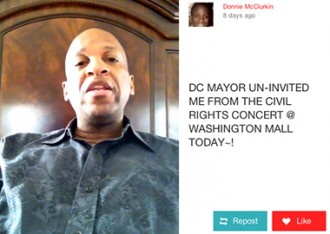
Last week there was a flurry of controversy over the public disinviting of gospel star Donnie Mclurkin to a DC celebration of in advance of the 50th anniversary of the March on Washington. The mayor’s…
Read More
As the 40th anniversary of Roe v. Wade passed, evangelical leaders marked the occasion with histories of how their community took up the anti-abortion cause.
Read MoreSomething like the immortal words of one prosecutor to the KKK: “kiss my ass.”
Read More
Jesus may be looking beyond the candidate’s faults, but we’re not.
Read More
In his latest the Times’ conservative Wunderkind Ross Douthat attempts to explain the current crisis as the result of our nation’s departure from orthodoxy. An honest look at the history of orthodoxy and he might see a past rife with the sin and brutality, enforced less by faith than by coercion.
Read More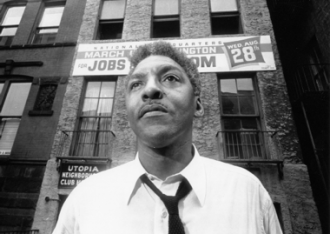
As NAACP President Ben Jealous told the Times last week, “it’s become clear that, just as Bayard Rustin admonished us all, that we would either stand together or die apart.”
“Who admonished us?” readers must have asked. Bayard Rustin’s role as advisor to Dr. Martin Luther King Jr. and as organizer of the 1963 March on Washington for Jobs and Freedom (where King delivered his “I Have a Dream” speech) should have assured his place in American social and political history. But Rustin has long been denied his proper place—largely because he was an openly gay man.
Read More
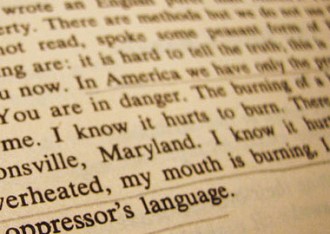
Rich’s approach to her religious identity was of a piece with her approach to every aspect of her identity. For Rich, any identity worth achieving involved struggle and resistance—be it national identity (“a patriot is one who wrestles for the / soul of her country / as she wrestles for her own being”), gender identity (“A thinking woman sleeps with monsters. / The beak that grips her, she becomes.”), or the committed poet’s identity (“She cannot teach the end of bonds; but she can refuse to justify, accord with, ignore their existence”).
Read More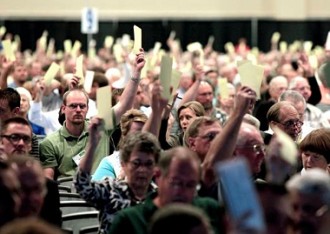
For leaders of the Southern Baptist Convention, if heaven ain’t a lot like Dixie—with low taxes, fewer regulations, a decreased state involvement in public welfare and institutions, denial of coverage for women’s health concerns, and bitter attacks on the Obama administration launched from every available platform—then they don’t want to go. And even the city slickers running Mitt Romney’s campaigns and the rowdy friends at Ron Paul’s rallies should be able to appreciate that.
Read More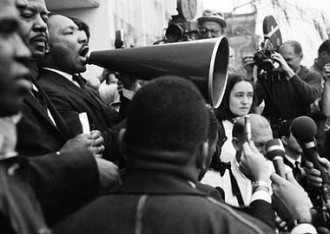
The prophetic tradition of black Christianity remains alive, if embattled. It is impossible to conceive of the civil rights movement without placing black Christianity at its center, for it empowered the rank and file who made the movement move. And when it moved, it was able to demolish the system of legal segregation. The history of black Christianity in America made that transformation possible, even as it frustrated some of the deeper-rooted aims of some activists who sought to address issues of income and wealth inequality as much as the formal legal structures of “civil rights.” That remains the prophetic task of the generation misleadingly labeled as “post-racial.”
Read More